Canada is arguably the most divided it has been since Confederation, or at least since Pierre Trudeau implemented the disastrous National Energy Program almost forty years ago.

Now, with Justin Trudeau’s Liberals in power, Conservatives in Alberta (a province which was, up until 2014, the economic leader of North America), and many around the country are feeling left out of economic opportunity. Due to dramatic income tax code changes, a forced carbon tax, depressed oil prices and controversial social law changes, there is disdain and division growing in western Canada toward Ottawa once again. And with NAFTA talks floundering, the Canadian auto sector could be in for a beating, potentially driving further divide with Canadian workers and Ottawa.
Canada’s Division Seen in Pipeline Failures
But nothing has exposed Canada’s division as clearly as the failure to produce a single new pipeline to export natural gas or oil to foreign markets in over a decade…
The latest case in point: Less than two weeks ago, the Energy East Pipeline, which would have transported over 1 million barrels per day of Alberta oil to Canada’s east coast to be refined, was cancelled due to staunch eastern opposition and the NEB (National Energy Board) including upstream and downstream emissions in its assessment of the project. The hurdles and regulatory uncertainty became too much for Alberta’s TransCanada and they justifiably walked…
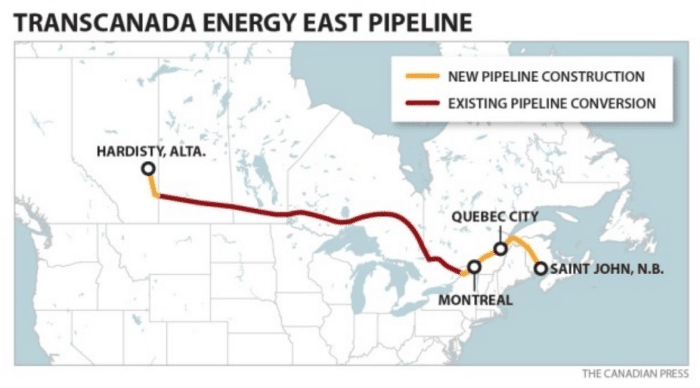
This was a huge blow for Canada’s future GDP growth. Yet Montreal mayor Denis Coderre appeared to be in a celebratory mood after the cancellation. According to Global News, “The mayor who has been the strongest opponent in Quebec of the pipeline that would have carried Alberta bitumen from Alberta to the Atlantic coast, said he was proud of work done by those who tried to stop it.”
Those words served as a swift slap in the face to Alberta and more specifically, the nation’s entire energy sector. Coderre’s home province, Quebec, has been the beneficiary of transfer payments from Alberta’s once booming energy sector for decades. What’s more, last year a poll from the Angus Reid Institute was taken to gauge support for this significant and strategic oil pipeline… roughly 64% of Canadians supported it. Nearly 50% of Quebecors supported it as well.
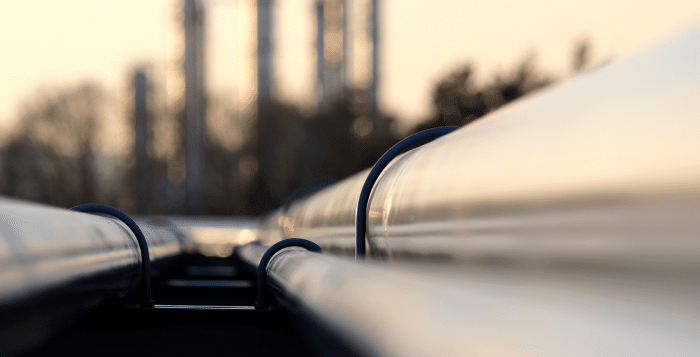
Three Critical Pieces to a Growing Economy
It is important to note one of the three critical pieces to a growing economy and improving standard of living, according to *Peter Zeihan, American author of The Accidental Super Power. The first and most important is what is known as the ‘balance of transport’. Simply put, dating back to Egypt’s rise thousands of years ago to modern day, countries which have made it easy to move their critical goods and general population domestically, via roads, rail, ship, air, pipelines and so forth, have experienced exceptional economic growth because these features enable hardy internal trade and development.
Needless to say, oil and gas are critical products of Canada’s economy. And cheap energy, defined in the third component of Zeihan’s thesis known as ‘industrialization,’ is the critical piece for a country to have a leading economy. Since the beginning of time, a decreasing cost of energy has been directly tied to increasing worker productivity. In fact, cheaper energy increases a nation’s productivity by “an order of magnitude,” according to Zeihan.
In short, don’t overlook the significance of what has transpired over the last several years with Canada’s inability to get pipelines and natural gas facilities built, and the social division that brings. The significance of the Energy East Pipeline cancellation wasn’t lost on Peter Zeihan… The day it was abandoned by TransCanada, he tweeted,
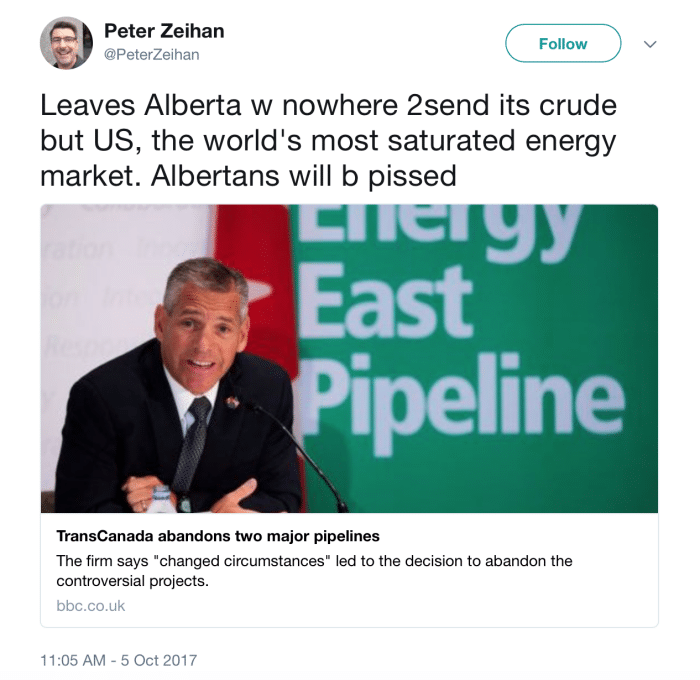
* Peter Zeihan is a geopolitical strategist who specializes in global energy, demographics and security. He analyzes the realities of geography and populations to deepen the understanding of how global politics impact markets and economic trends.
Pipeline Delays Hurt Canada’s Economic Bottom Line
CBC reported last week,
“The pipeline was originally scheduled to be approved by the end of 2014 and in operation by the end of 2018. Instead, delays won by Indigenous communities, grassroots groups, labour unions and NGOs prevented Energy East from being built when it was still economically and politically feasible, back when the price of oil was well north of $80 per barrel.”
Culture influences politics, not the other way around. As investors, we all must understand this and know that politicians set policy which can facilitate or stunt economic output. So, if the division and lack of predictable policy – specifically with regard to the oil & gas sector – we’ve seen in recent years is a preview, Canada is in serious economic trouble.
Conservative or Liberal Prime Minister | On Canada Pipelines Same Result
Prime Minister Justin Trudeau approved not one, but two oil pipelines following his ascension to power: Enbridge’s Line 3 (carrying oil from Alberta to Wisconsin), and Kinder Morgan’s Trans Mountain Pipeline System, estimated to cost $7.4 billion. The latter is coming under attack by British Columbia’s new NDP-Green coalition who have vowed to stop it, despite it falling under  federal government control.
federal government control.
While the cost of these two projects is measurable, the resistance and failure by Canada’s government to fast-track their development undermines future investment. Not only that, but it secures Canada’s southern cousins (U.S) and way to the south (Australia) will dominate market share in the future. For evidence of this, one simply has to look at the multinational energy companies who have abandoned Canadian oil & gas projects in the last 24 months, and left for America and Australia. Tens of billions of dollars of future energy investment has left Canada in the last two years, largely due to the regulatory and social uncertainty. More on this shortly.
Even When the Feds Approve a Canada Pipeline it’s Still a No-Go
In early-August, Kinder Morgan said pipeline construction to expand its Trans Mountain Pipeline System would begin in September. However, in late-August, the Federal Court of Appeal granted B.C.’s newly elected NDP-Green coalition government the right to be an ‘intervener.’ A legal battle is forthcoming over the Kinder Morgan Trans Mountain pipeline expansion. Bear in mind, this is merely twinning a pipeline.
Canada’s National Energy Board told Kinder Morgan in late-September to stop installing deterrent mats because they’re considered construction activity. The project is now in limbo, if you can believe it…
Think about it. If Stephen Harper, a staunch Alberta born, pro-oil conservative, could not get a single pipeline advanced to the build stage in 10 years, how will Trudeau?
Canada’s Energy Economic Reality
Investors need to be aware this national division is a new, hazardous reality, likely here to stay for the next several years. The culture is shifting and it is undermining legacy natural resource industries on which Canada depends. All Canadian investors, not just aggressive-growth investors like ourselves, need to be acutely aware of this.
While social division is a defined barrier to economic growth, red-tape and indecision are just as toxic. The latter have resulted in billions of energy investment dollars fleeing Canada. Here are some companies not waiting for the next NDP-led government (both Alberta and B.C. – Canada’s oil and gas leading provinces – are currently led by NDP governments) to shut their project down:
- In March of 2017, Shell walked away from plans to build the Prince Rupert LNG project. Also, the company sold the majority of its Alberta oil sands assets to Canadian Natural Resources in a USD$8.5-billion deal.
- Shell is still involved with an LNG export terminal planned for Kitimat, B.C. named LNG Canada; however, like all LNG terminals in B.C., final approval has yet to be granted. It has a price tag between $25 and $50 billion.
Liberals and Conservatives Fail to Build Pipelines
Kitimat’s municipal site explains, “The project received provincial and federal Environmental Assessment Certificates in June 2015. In January 2016, a 40-year export licence was granted by the NEB. The project awaits a final investment decision before moving into development.”
- On September 14th, Nexen Energy, a Calgary-based subsidiary of Chinese oil giant CNOOC and Japanese partner INPEX Gas British Columbia abandoned work on its $28 billion Aurora LNG project off the coast of Prince Rupert.
- Two months earlier, Malaysia’s state-owned Petronas canceled its $36-billion Pacific NorthWest LNG project near Port Edward, BC.
Again, if these projects could not get off the ground under the pro-business B.C. Liberals and previous federal Conservatives, what chance do they have with the Green/NDP coalition?
Two other proposed natural gas export projects in northwestern B.C. are Kitimat LNG and its sister project Pacific Trail Pipeline. Both are owned 50/50 by Chevron Canada and Woodside Canada. As is the case with Prince Rupert, no decision has been made. Noted on Kitimat’s website, “The project is subject to a final investment decision.”
Natural Gas Project Failures and Pipeline Cancellations Spook Global Oil Players
We predicted this threat was real with natural gas, it’s now happening with oil; and, sadly, will likely happen with mineral extraction. Way back in May of 2013, we published The Four Nat Gas Horsemen, which highlighted Canada’s desperate plight to beat Russia, the United States and Australia to natural gas-hungry markets in Asia and Europe. All three countries have brought natural gas terminals online since then and have many more coming online in the next few years. Canada missed the boat…
Energy East Breakdown Sparks Anger and Increases Division Across Canada
Incumbent Montreal mayor Denis Coderre had strong words for TransCanada – the proposed operator of Energy East. The Montreal Gazette reported,
“I’ve been saying since Day 1 that (TransCanada was) arrogant and condescending,” Coderre told reporters Thursday morning. “It’s an enormous victory.”
This is a business decision, and should never be an emotional one. The fiery French Canadian mayor Coderre is chest pounding on the back of another pipeline shutdown…
Saskatchewan Premier Brad Wall was quick to respond:
“I didn’t hear (Trudeau) say anything about the mayor of Montreal (Denis Coderre) basically dancing on the graves of Saskatchewan and Alberta jobs by celebrating the end of this.”
Montreal CTV News reported Quebec’s Environment Minister David Heurtel stated:
“Social acceptability is a key component of any project,” he said. “You can’t just come in and say, ‘OK, we’re going to do this.’ And you have to adapt your project to the realities of the local governments,” adding that they would have to “adapt to the realities and the legislative context of individual provinces.”

U.S. Oil Producers Leaving Canada in Droves
On many energy debates in Canada, it seems Quebec politicians have more of a say than all three western provinces combined. Imagine the global head of a multinational energy company reading Heurtel’s comments. It’s no wonder foreign energy companies are fleeing Canada at a record pace.
In June, U.S. oil and gas producer Apache Corp. bailed on Canadian light oil assets. The company parted with a portion of its Canadian production for $330 million in a sale to Canada’s Cardinal Energy. An Apache spokesman said the company prefers to focus on high-growth areas such the Permian basin shale in Texas. Sadly, companies like Apache are the tip of an increasingly large iceberg.
Read: Choosing U.S. over Alberta and Sask: Apache sells Canadian oil assets to Cardinal for $330M
Global oil majors, including ConocoPhillips and Marathon Oil, have sold off $22.5 billion of Canadian assets in 2017 alone! So far, and thankfully, Canadian producers have stepped up to buy the assets.
In May of 2017, in our report titled Canada’s Devastating Financial Defeat, we summarized,
“…the United States and now Australia are positioned for LNG export dominance. We called this back in September of 2015, in a Weekly Volume titled ‘Canada Missed the Boat.’ We have been warning time would run out for LNG Canada for almost half a decade; and, now, it finally has…”
In a July weekly volume titled, This is How Canadian Oil Will Die, we outlined the cost of indecision,
“The energy market is changing rapidly due to the rise of electric vehicles, which is real and will continue to grow. An America led by pro-energy Trump will take no prisoners and leave Canada’s expensive oil sands, which lacks domestic refineries, in the dust.”
Canada Pipelines: Trumped by Trump
While the examples are plenty when it comes to the U.S. eating Canada’s economic lunch — from bringing natural gas terminals online since 2010 to recent executive orders by Trump approving the Dakota and Keystone XL oil pipelines — the latest blow is tied to Energy East. As Canada fights internally, it overpays to buy its own energy back…
Consider this: With the cancellation of Energy East, Canada will continue to buy back its own oil from the U.S. after it is refined. American refiners buy oil sands at a cheap, discounted price, refine it and send it back to Canada for a premium… how ridiculous is that? If nothing else, it is just terrible business.
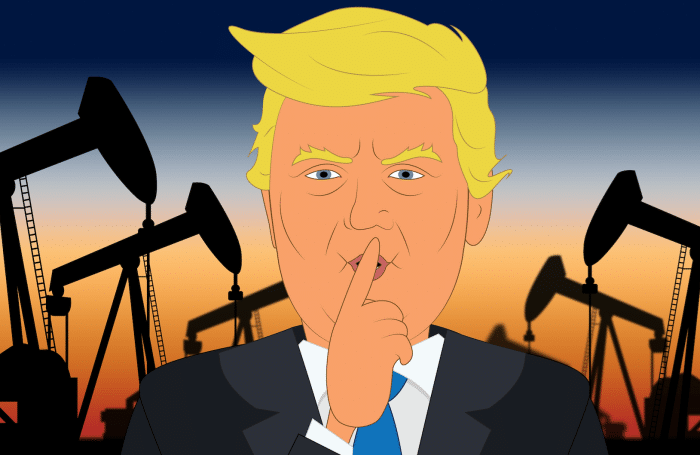
It wasn’t just environmentalists and politicians in Quebec that shut down Energy East. The pipeline project was initially proposed in 2013 when oil was near $90 per barrel. Back then, western Canadian oil production was expected to grow significantly, but has since been revised downward. And it was proposed after President Obama dragged his heels on the Keystone XL permit before eventually denying it entirely. Obama’s denial opened the door for Energy East and for Canada to refine more of its own product; but then Trump happened. Trump was a win for American refiners.
Trump Puts Keystone XL Back on the Table
Remember what we wrote in July,
“An America led by pro-energy Trump will take no prisoners and leave Canada’s expensive oil sands, which lacks domestic refineries, in the dust.”
Trump’s election put Keystone XL firmly back on the table. The pipeline is an 800,000-barrel-a-day express line taking Alberta oil to refining centres on the Gulf Coast – firmly out of reach of Canadian refineries. Thus, keeping the status quo of Canada selling its most prized natural resource to America at a discount only to buy it back for a premium after being refined in the U.S.
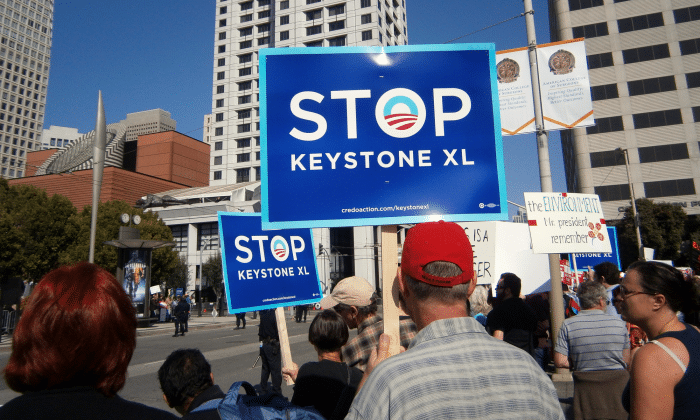
Trudeau and the Liberal government have been in support of Keystone XL for some time. He stated shortly after being elected Prime Minister,
“I reiterated my support for the project. I’ve been on the record for many years supporting [Keystone XL] because it leads to economic growth and good jobs for Albertans.”
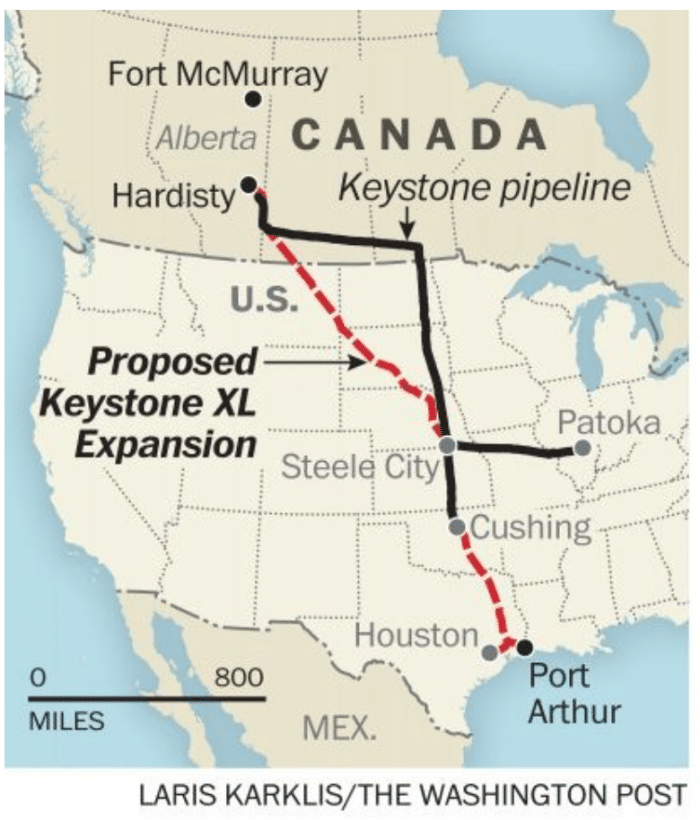
Canada Moves to Crossroads with Elections Looming
While it’s easy to support a pipeline with its largest footprint in another country, the Trudeau government is treading carefully on its pipelines stances. Canada is approaching a crossroads. New industry and diversification is coming. But it will not come soon enough to save the Great White North from extreme deficits that could cripple it for decades to come.
Canada’s natural resource sector accounted for 16% of nominal GDP in 2016. The sector supports more than 1.74 million jobs in Canada. By the end of 2016, there was $684 billion in major projects planned in the natural resource sector – with over $600 billion specifically in energy. We’ve outlined the tens of billions of dollars in projects that have failed or departed the country in the last two years.
The Canadian government derived about $25 billion in revenue between 2011 and 2015 from the energy sector. Finally, with over $200 billion in exports in 2016, the natural resource sector needs to be respected by citizens and politicians in Canada. Otherwise we will continue to scare off risk capital and fail to attract foreign investment – two pillars of economic growth.
All the best with your investments,
PINNACLEDIGEST.COM
P.S. If you’re not already a member of our newsletter and you invest in TSX Venture stocks, what are you waiting for? Subscribe today. Only our best content will land in your inbox.


